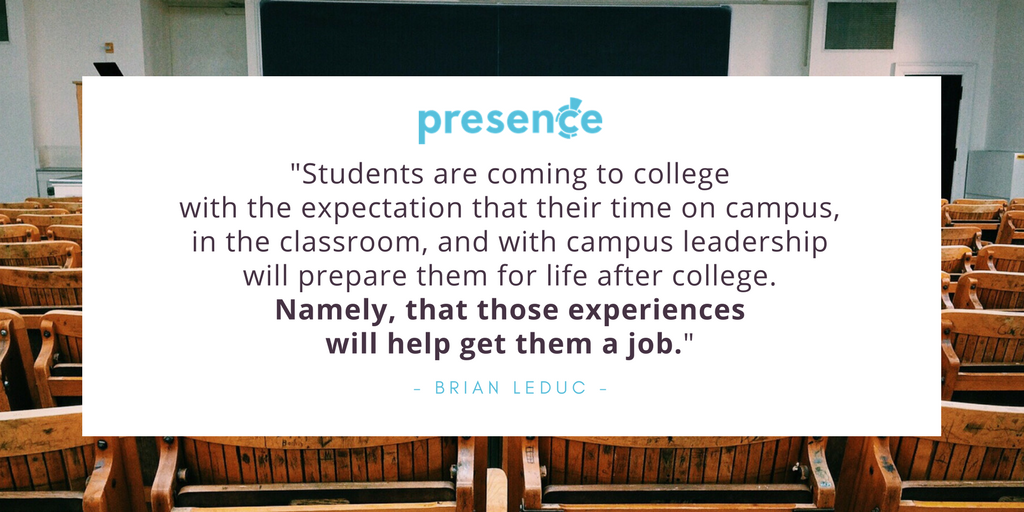100% staff growth. Three student cohorts. Two campus moves and regulatory sign-offs. One new course launch.
There are a lot of ways to measure my time running a coding bootcamp in Washington, DC, but the enduring lesson that sticks with me today is the importance of keeping prospective alumni employers close throughout your program development and growth.
We built these relationships through the DC campus advisory board: a group of local employers who helped to inform the curriculum, support students, and who served as local advocates for the value of coding bootcamps and the quality of our students — many of whom they hired.
Despite the fact that code schools have had a rocky year, their workforce guidance for career-changers increasingly reflects the emerging trends and expectations of students on college campuses. In fact, these lessons have informed more than a few of my earlier posts, like this one and also this one. More and more, students are coming to college with the expectation that their time on campus, in the classroom, and with faculty and campus leadership will prepare them for life after college, and namely, to get them a job.

Notably, the concept of advisory boards are not foreign to higher education. And while there are several instances of advisory boards in business school leadership structures, they’re also becoming increasingly present in leadership development offices with a lot of potential to expand into campus engagement more broadly.
I’d go so far as to say that if you’re offering leadership development or education programming on your campus, you’re missing an opportunity by not having an employer advisory board as a resource.
Ready to start your own office advisory board? Here are a few tips to get you started:
1. Look beyond campus, but not far
Is there value in bringing in the owner of the local concert hall for program co-sponsorship, coordination, and promotion? Do you need influence and insight from local marketing minds or design firms that might offer a hiring path to hiring your students, or added capacity to consult on the brand of your office or student organizations (or vice versa)?
Local partnerships help your students feel more connected to the community beyond their campus, and they can generate goodwill between your institution and the community. They can also help encourage alumni to stay local after graduation, which makes for an even bigger mentor network!
2. What competencies and expertise does your office have, and where are the gaps that you need to fill?
Many universities bring speakers to campus to share a message that they feel needs an outside voice — but what if that voice also had local credibility and a direct connection to the university?
Cultivating those relationships through an advisory board might be a great place to start, and even if no one on the board is interested in presenting, they might know someone who is. Advisory boards have all of the perks of networking tools like LinkedIn. So if you know that your institution is looking to offer more programming in particular topic areas, ask yourself who locally might be interested and interesting. They could also be a great voice for your advisory board, and could serve as a mentor or role model to students who are interested in that topic area.
3. What can you do for your students through an advisory board?
What if there were local community organizations that might open up internships or jobs for your students if only they knew what those students were capable of? What if they learned about how great your students are not through chance, but through intentionally cultivated relationships?
Advisory boards can be useful for informing your office’s work, or as a starting point on a ladder of engagement and partnership, integrating them more deeply into your work. An engaged employer-turned-advisory board member can become a guest presenter at a leadership development event, a participant on a campus committee focused on job-oriented skills, an employer involved in career fairs, a presenter at networking events, or a judge for your end of semester talent show.
Building an advisory board not only deepens your institution’s connection to the campus community, but opens up opportunities for your students.
At the code school, we toured the offices of nearby tech companies, brought in panels of local employers and recruiters, and incorporated mentorship and advice from pros during final projects. I called on employers when we needed a space to host our demonstration day and when we decided to expand our offerings.
After one of the campus relocations, demo day – the event for students to show off what they learned in the program through final projects and put their best foot forward on their way to their first job as a junior developer — was quickly approaching.
Unfortunately, the temporary space that we moved into wasn’t an inspiring complement to the quality of student work, and I was stuck scrambling for a space on short notice.
My first calls? Two employers on our advisory board with offices on the same street. One CTO offered up their space for the event and helped lay the foundation for a successful introduction of this fresh set of new developers.
Cultivated over several months, two phone calls turned a tough situation into a mutually beneficial opportunity to highlight the code school’s connection to the community and show off the employer’s newly opened office.
That’s the power of having an advisory board.
Does your department have an advisory board? How do you leverage community partnerships? I’d love to hear about your experiences and ideas — so let me know on Twitter, @BrianFLeduc.





